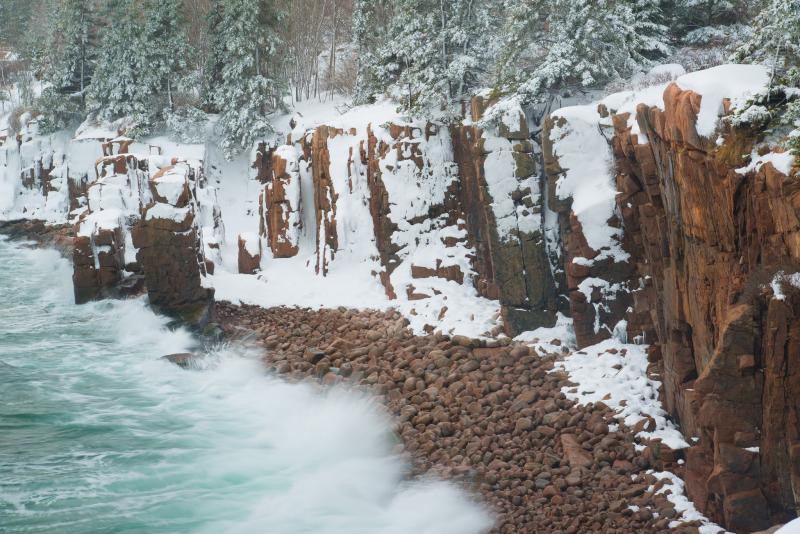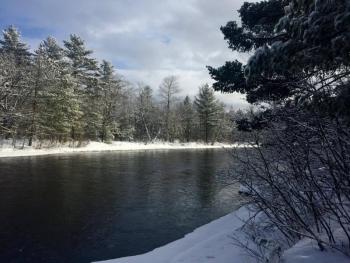As the partial federal government shutdown enters its third week, during which many pieces of public land remain open to visitors but with low or no staffing, horror stories have emerged all over the United States about people leaving trash strewn everywhere, vandalism, injuries and deaths still under investigation. The shutdown has not produced that kind of behavior in Maine, according to several administrators familiar with Acadia National Park and the Appalachian Trail. Administrators for the other federally-run parks were unavailable for comment.
The wilderness areas in Maine affected by the federal government shutdown include:
Acadia National Park
Acadia National Park at Schoodic Peninsula
Katahdin Wood and Waters Monument
Roosevelt Campobello International Park Commission
St. Croix Island International Historic Site
Sections of the Appalachian Trail
While the shutdown continues, administrators for those areas refer all media inquiries to the National Parks Service website, where an emergency banner states: “Some national parks may remain accessible to visitors; however, access may change without notice. Some parks are closed completely. Some visitor services may be available when provided by concessioners or other entities. For most parks, there will be no National Park Service-provided visitor services, such as restrooms, trash collection, facilities, or road maintenance.”
As for local nonprofits who support the federal parks and forests, they are keeping a steward’s eye on the situation.
“Friends of Acadia is deeply troubled by the federal government shutdown and the challenges it poses for Acadia,” said David MacDonald, President, Friends of Acadia in a news release.
“The fact that it comes in the depths of winter means that impacts on visitors and local businesses are far less than the 2013 shutdown at the height of fall foliage season. The debilitating effect on the park itself, however, cannot be overstated. The park cannot just run itself. More than 75 full-time professionals who help care for Acadia have been furloughed, leaving important work in limbo. Acadia already operates on a razor-thin budget, and to lose core functions for even a few days is a set-back for all of the work necessary to prepare for the coming year and to operate and protect one of America’s busiest and most-beloved parks.”
The issues that other national parks and forests currently face, including excessive trash, human waste and trail destruction are not major issues in Maine according to Earl Brechlin, Communications Director for Friends of Acadia.
“A lot of people love Acadia and have great affection for it,” he said. “In winter, it’s mostly folks from Maine who’ve been here before. There haven’t been a ton of services in the winter, so they are used to it.”
The proximity to Bar Harbor is also a reason for the Park’s cleanliness.
“The fact is here in Maine, the park is so intertwined with the community, it’s not like it’s a 50-mile drive to get to a public bathroom,” said Brechlin.
The Appalachian Trail is closed, but accessible in Maine, as well as throughout the entire trail system. This means that visitors can still access all sections of the A.T., but all facilities and support that is managed by the National Park Service (NPS) and the U.S. Forest Service (USFS) will be unavailable.
That includes restrooms, visitor centers and other buildings, concessions, information services, and other services.
“In Maine, we aren’t doing any work on the Appalachian Trail anyway this time of year,” said Claire Polfus, Maine Program Manager for the Appalachian Trail Conservancy within the New England regional office. “We manage it for three seasons, so those issues you’re seeing in the news at other national parks are not happening on the Appalachian Trail. The biggest issue is that the volunteers who keep the AT up and running year-round, are not allowed to work. So, for some background, the volunteers’ safety is covered by the national park system and because they are not covered during the shutdown, they are not allowed to work.”
Asked if she has witnessed any of the destruction that other national parks are experiencing due to lack of oversight, she said, “Certainly not in Maine.”
Tips on visiting federal parks and forests during the shutdown
The NPCA recommends: “We don’t want to discourage people from visiting their public lands, but given current conditions, we recommend people consider waiting until parks are fully staffed and safe to visit. We urge those who do visit to make wise decisions, look out for their safety and the safety of others, practice leave-no-trace ethics, and use extreme caution to ensure their behaviors aren’t harming park resources.”
Friends of Acadia have issued a poster (see accompanying poster) on how to be best prepared while the shut down is still underway. That includes a consistent emphasis on safety. LINK TO THE STORY HERE AS WELL (Read How to keep your car ‘emergency prepared’ for winter.)
The Appalachian Trail website warns winter campers that damaged trees from recent storms may present camping hazards due to saturated soils.
“Campers need to be extremely vigilant about inspecting overnight sites for trees and limbs around and above them that could fall, even in completely still conditions. Be vigilant about your surroundings and stay safe.”
In addition, the AT site cautions: “Although trailhead areas are generally safe, vandalism or car-breaks can potentially occur at any remote trailhead. Never leave valuables visible in your vehicle.”
For more information and updates visit:
The Roosevelt Campobello International Park Commission
St. Croix Island International Historic Site.
Kay Stephens can be reached at news@penbaypilot.com


























